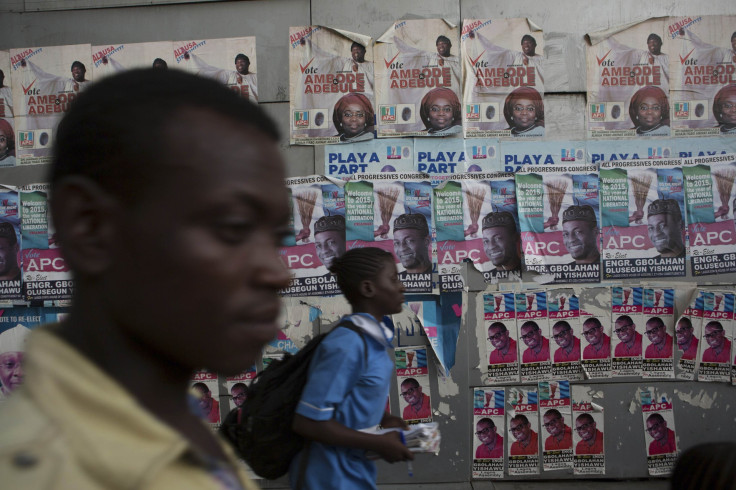Nigeria Elections: Immigration, Voter ID Crackdown Ahead Of March 28 Vote

Nigerian authorities are carrying out a nationwide crackdown against undocumented immigrants this week ahead of the country’s upcoming general election. The government has said the crackdown is part of a campaign to ensure that foreigners do not participate in the March 28 ballot, which is one of Nigeria’s most closely fought elections in decades.
The country’s immigration service department has seized 191 permanent voter identification cards from foreigners, according to the agency’s spokesperson Chukwuemeka Obua, Xinhua reported on Thursday. Fifty-seven temporary voters cards and 367 old national identity cards were also recovered by immigration authorities in northern Sokoto, Jigawa and Zamfara states.
Authorities in the southeastern Cross River state on Thursday also arrested 40 immigrants for entering the country without valid travel documents, Nigeria’s Premium Times reported. The immigrants were from neighboring countries like Niger, Cameroon and Senegal, said state immigration comptroller Funke Adeuyi, who added that the arrests were part of a broader effort to by Nigeria’s government to expel undocumented immigrants from the country.
The crackdown comes as the government struggles to distribute voter cards to legal voters in the country ahead of an election that has already been postponed from its initial scheduled date of Feb. 14 due to security concerns. Protesters stormed the Independent National Electoral Commission headquarters in Abuja last week after accusing the government of President Goodluck Jonathan of failing to distribute up to 40 percent of the voter cards required to participate in the election. Demonstrators also claimed that the government had not recruited sufficient staff to conduct the election, which they argued would disenfranchise millions of voters in the country.
While the government has focused on the security threats posed by Boko Haram’s insurgency in the country’s northeast in justifying their decision to postpone the elections, national security advisor Sambo Dasuki has previously pointed to the delay in distributing voter identification as a reason for pushing back the vote.
© Copyright IBTimes 2024. All rights reserved.






















